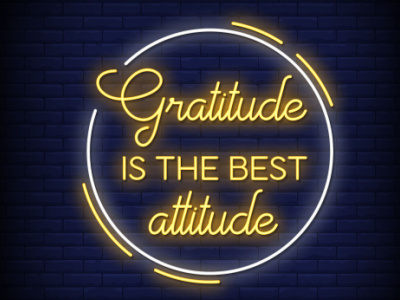Not receiving a “thank you” when holding a door open for a stranger at the store or when helping a friend with an errand can be disheartening and annoying, and it can even foster resentment. But while failing to express gratitude can rub the do-gooder the wrong way, it can also mean the not-so-grateful person misses out on benefits, too.
The Positive Impacts of Cortisol …
“When a sudden stressful event or circumstances arise, the body responds naturally by releasing adrenaline and cortisol,” explains Najma Khorammi in an article for Psychology Today. “Cortisol is responsible for increases of glucose in the bloodstream to facilitate activity in the brain and repair of tissues. When stress persists and turns into chronic stress, cortisol and other hormones are active routinely.”
… And Potential Negative Implications
Khorammi explains that such hormones contribute to a number of negative psychological and emotional impacts, such as:
- Anxiety
- Depression
- Digestive problems
- Headaches
- Heart disease
- Sleep problems
- Weight gain
- Memory and concentration impairment
It’s probably no surprise that stress has many well-established negative health effects, but what may be surprising is how expressing gratitude can combat those negative effects.
The Power of Gratitude
“If incorporated, gratitude has the potential to be a potent coping strategy. Gratitude helps lower cortisol levels in our bodies by about 23 percent, thereby preventing the health problems that stress can lead up to,” continues Khorammi.
In the context of the corporate world, expressing gratitude or even simply feeling grateful can help reduce work-related stress. It could be gratitude for a top-notch administrative team who helps facilitate complex tasks, gratitude for sound advice from a manager or mentor, or gratitude for a colleague covering a shift for a much-needed day or week away from work.
This gratitude not only helps reduce stress for the one expressing it but also serves as a means of fostering greater engagement and feelings of appreciation for the person receiving the gratitude, not to mention the strong interpersonal bonds it can build.
Lin Grensing-Pophal is a Contributing Editor at HR Daily Advisor.

